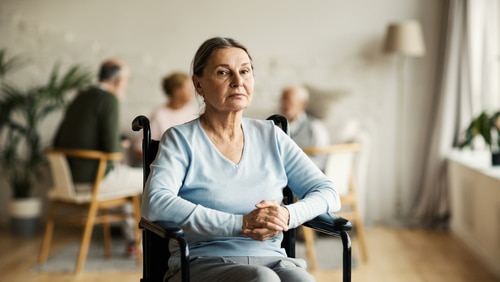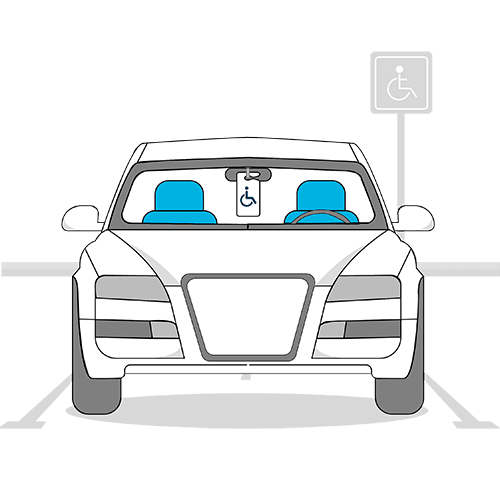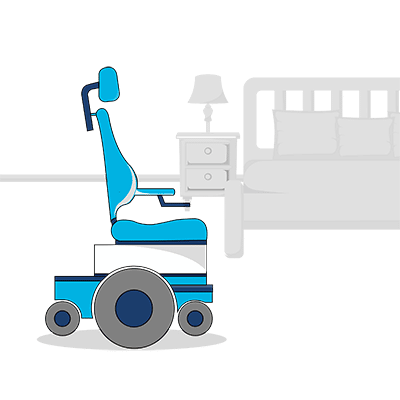Our government tabled the Royal Commission into Violence, Abuse, Neglect and Exploitation of People with Disability report in the Australian Parliament on 29 September 2023. It’s a result of somewhat five years of work, and contains 222 recommendations to the government on how to improve the lives of people living with disability.
It brings long-overdue attention to the mistreatment and discrimination faced by the 4.4 million Australians living with disability in our country. The aim is to bring about systemic change and improve the lives of those this affects.
Below, we’ve rounded up what you need to know – from what’s in the report to how the Australian government intends on addressing the findings.
In this article

What’s the Disability Royal Commission report?
The final 12-volume report on the Royal Commission into Violence, Abuse, Neglect and Exploitation of People with Disability documents the experiences of those living with disability in Australia.
Over a period of five years, the Commission gathered evidence from around 10,000 Australians living with disability. The resulting report released findings on the following:
- Their experiences living in different settings and institutions.
- The role of the government and other organisations in stopping and responding to violence, abuse, neglect, and exploitation.
- The impact of violence, abuse, neglect, and exploitation on people living with disability and their families.
Though the disability royal commission report shows the serious challenges faced by people living with disability in Australia, it’s also a hopeful document that could make a real difference if its suggestions are adopted.
What did the report find?
Activists have long known about the significant challenges facing those living with disability – and the Disability Royal Commission report’s evidence reflects this.
Insights accumulated include the following:
- More than half of people with disability have experienced physical or sexual abuse since the age of 15.
- They’re more likely to be victims of crime than people without disability.
- People living with disability are more likely to be victims of family violence.
- They’re more likely to experience neglect and exploitation.
- More than half have experienced violence, abuse, neglect or exploitation in a residential setting.
- People living with disability are more likely to be victims of crime committed in a public place.
- People living with intellectual disability are more likely to experience violence, abuse, neglect or exploitation.
Another key insight is that Aboriginal and Torres Strait Islander people living with disability are more likely to experience violence, abuse, neglect or exploitation. The Royal Commission brought out a brochure called Listening to First Nations people with disability to collate what they heard from First Nations people living with disability, their families and their communities about the issues and challenges they face.
The Royal Commission also published 1,586 narratives on its website. These are de-identified experiences of people living with disability, their families and supporters shared in private sessions and submissions to the Commission.
What are the Disability Royal Commission report’s recommendations?
The report made 222 recommendations to the government on how to make things better. These tackle big issues like education, employment, and issues affecting women. Here are some of them:
Education
Some of the report’s commissioners want special schools to be closed over time as students with disability integrate into mainstream schools. Others think that they should stay open but work more closely with mainstream schools.
The commissioners who want to close special schools say that students living with disability often don’t have a chance to go to mainstream schools if they start in a special school. They also say it keeps these students segregated in other parts of their lives.
Others say that these schools are important for students living with disability who need more support than they can get in a mainstream school and that they can help them develop the skills they need to live independently.
All of the commissioners agree that the current system isn’t working and that something needs to change. They suggest that the government should invest in making mainstream schools more inclusive.
Employment
Four commissioners out of six commissioners say that segregated employment, including Australian Disability Enterprises (ADEs), should be phased out by 2034. ADEs are workplaces where people can be paid as little as $2.50 per hour.
The commissioners said that ADEs are a type of segregation that infringes on human rights and that we need to take steps to prevent people earning below minimum wage.
The commissioners also say that targets should be set for disability employment in the public sector. Currently, only about 53% of people living with disability are in the workforce, compared to about 84% of people without disabilities.
Group homes
Some commissioners recommended in the Disability Royal Commission report that the government should phase out group homes in 15 years. They cite “pervasive abuse and neglect” in these institutions. Stories range from the use of chemical and physical restraints to financial exploitation by staff members.
Around 17,000 people live in group homes in Australia.
Four commissioners argue that the group home model will “never realise the rights of people living with disability.” Another agreed they should be phased out, but “carefully within a generational timeframe.”
All of the commissioners strongly support the expansion of alternative housing options to provide greater choice.
Please note a trigger warning for descriptions of sexual abuse in the video below, before you decide whether to watch it:
Click here for more of the main takeaways.
What the Disability Royal Commission report means for you
The hope is that in bringing about systemic changes in the way Australia treats and takes care of those living with disability, that each individual will see their quality of life get better.
Government has committed to responding to the Disability Royal Commission’s recommendations by 31 March 2024. This response in intended to include a timeline for putting the recommendations into action. It may also give an explanation of any of the recommendations that the government doesn’t plan to action.
A Disability Reform Ministerial Council has been founded to oversee implementation of the recommendations. Senior government ministers from all levels of government make up the Council, as well as representatives from the disability sector.
The Disability Royal Commission’s suggestions are a significant step forward for people living with disability in Australia. Government’s response will be a critical test of its commitment to those living with disability.
The report’s recommendations are ambitious, and it will take time and resources to implement them fully. However, it’s an opportunity to create a more inclusive and accessible Australia for all of us.
Criticism of the Disability Royal Commission report
Some people criticise the report for focusing too much on individual stories of abuse and neglect, and not enough on systemic issues. Others say it isn’t critical enough of the state’s role in perpetuating violence and abuse against people living with disability.
A Sky News Australia contributor criticised the recommendation to phase out special schools. Watch the video below for more.
Read more advocacy articles
The Blue Badge Insurance blog is all about educating people with and without disability about all things disability. Some of our articles include advocacy pieces – some of which are below. Why not take some time to read up now?
- Australia’s Older Persons Need More Than Care
- A Look at the Royal Commission into Aged Care
- Accessing the National Redress Scheme as Someone Living with Disability
- Vaccines, Not Votes – Let’s Keep Politics Out of the Vaccine Rollout
- Universal Design in Housing – an Investment in Long Term Independence
- Why No First Time Access to NDIS After 65?
- Changes to Income Support Coming Up: Opinion
Insure your independence
Blue Badge Insurance is Australia’s first disability and independence insurance specialist. We understand your unique needs and challenges, so we offer insurance solutions from wheelchair insurance and mobility scooter insurance to disability car insurance and car insurance for wheelchair accessible vehicles and disability converted cars.
We even extend our insurance goodness to Assistance Dogs insurance and Blue Badge pet insurance.
Plus, with our car and companion animal cover you’ll be eligible for a discount of up to 25% if you have a disability parking permit. We’re all about supporting Australians living with disability.








